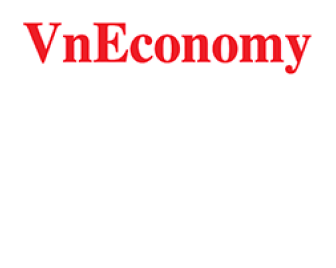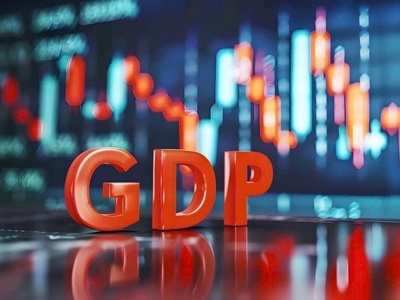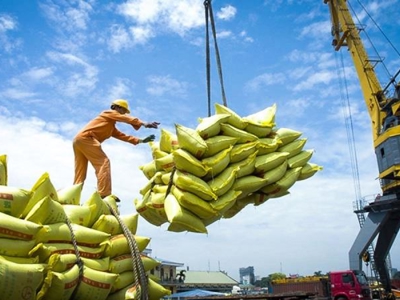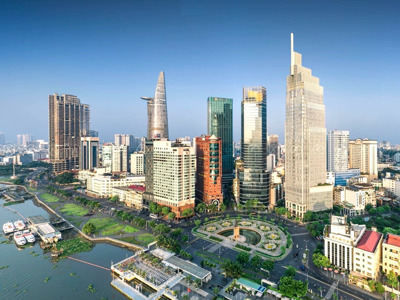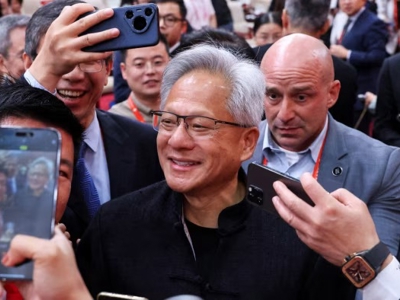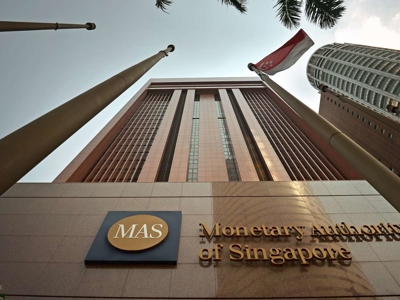UOB’s expert: Vietnam’s economic prospects in 2025 appear highly positive
Mr. Suan Teck Kin, Head of Research and Executive Director, Global Economics and Markets Research, at UOB, shares his insights on Vietnam’s economic growth prospects in 2025 and how the country can effectively capitalize on its development opportunities in the year ahead with VnEconomy / VET’s Phuong Hoa.

How would you assess Vietnam’s prospects in economic growth this year, particularly given the ongoing global uncertainties?
Vietnam’s economic prospects in 2025 appear highly positive, building on the strong momentum from an impressive 2024. The country’s robust export performance last year, with ten consecutive months of growth, is expected to continue provided global trade remains stable and free from disruptions, such as potential tariff policies from the US. This is significant because exports play a crucial role in Vietnam’s economy, with a value nearly equivalent to the country’s GDP posted last year.
If exports maintain their strong trajectory, Vietnam’s manufacturing sector will thrive, driving higher wages for workers. Increased wages, in turn, will boost domestic spending, creating a positive feedback loop for economic growth. This strong economic foundation enhances Vietnam’s chances of achieving its 2030 goal of attaining middle-income or developing market status. Overall, Vietnam’s positive momentum positions it well for continued success in 2025 and beyond.
What will be the main drivers of growth for Vietnam in 2025?
I believe trade will remain a key driver of growth in 2025, and continue to play a vital role in sustaining economic momentum.
Secondly, as trade expands, both FDI and domestic investment are likely to grow. Foreign businesses will continue to see Vietnam as an attractive investment destination, while domestic companies will seize opportunities created by the influx of foreign capital. Together, these investments will create a strong foundation for growth.
Lastly, the government will play a crucial role through its infrastructure investment. Continued government investment in infrastructure is essential for improving Vietnam’s competitiveness, productivity, and overall attractiveness as a business hub. These factors will be instrumental in driving its growth in 2025 and beyond.
How can Vietnam leverage its existing free trade agreements (FTAs) to expand export markets and attract more investment?
FTAs are crucial for any country, especially for Vietnam, given its high exposure to trade. It has the second-highest trade-to-GDP ratio in Southeast Asia, following Singapore. These FTAs play a key role in facilitating trade and helping Vietnam diversify its export markets.
Around 25 per cent of Vietnam’s exports are currently directed to the US. This heavy reliance poses risks; any significant economic disruptions in the US could severely impact Vietnamese exporters. To mitigate such risks, Vietnam must diversify its export markets. Leveraging FTAs is an effective way to achieve this diversification, as they open up new markets, reduce trade barriers, and enhance Vietnam’s global competitiveness.
Additionally, FTAs make Vietnam a more attractive destination for foreign investment by providing investors with easier access to both Vietnam’s domestic market and its FTA partner markets. This dual advantage strengthens Vietnam’s position in the global supply chain and bolsters its economic resilience.
How could US President Donald Trump’s protectionist policies impact Vietnam’s trade, and what measures should Vietnam take to mitigate risks and maximize opportunities in this context?
Vietnam’s significant reliance on the US as an export market makes it vulnerable to changes in US trade policies. The US’s protectionist measures, such as increased tariffs, could make Vietnamese goods more expensive and less competitive in the market. Similarly, the US’s currency-related policies could negatively impact exporters by reducing their price competitiveness.
In order to mitigate these risks, Vietnam should prioritize export market diversification. Reducing the share of exports to the US from 25 per cent to a lower percentage would lessen the impact of potential tariffs or other protectionist policies. Diversifying export destinations ensures that risks are spread across multiple markets rather than concentrated in one, minimizing the adverse effects of policy changes in a single country.
At the same time, Vietnam must continue to engage in global trade while promoting trade agreements that provide access to broader markets. Strengthening trade relationships with other major partners, such as the EU, China, Japan, and ASEAN countries, can provide alternative growth opportunities and reduce dependency on any single market.
Finally, Vietnam should work on enhancing its competitiveness through investments in innovation, technology, and supply chain improvements. This will enable its exports to remain attractive globally, even in the face of external risks like protectionist policies. While global trade growth is essential for Vietnam, careful risk management and strategic diversification will ensure greater economic stability and resilience.
Besides the opportunities, what do you see as the greatest challenge for Vietnam’s economic growth this year?
One significant challenge lies in the efficient disbursement of public expenditure. Some senior leaders have already highlighted concerns about public funds not being disbursed properly or quickly enough. This delay could hinder the timely implementation of infrastructure projects and other government-led initiatives, which are critical for supporting economic growth.
Ensuring that allocated funds are spent effectively and promptly at lower levels of government is crucial. Accelerating disbursement can help stimulate growth, especially if other key economic drivers such as trade, manufacturing, or private spending face headwinds. Public investment can act as a buffer to offset potential risks in these areas, providing stability and momentum for the economy.
Addressing this challenge requires better coordination, streamlined processes, and accountability at all levels of government to ensure public funds are utilized efficiently and contribute to sustained economic growth.
What should Vietnam do to create a more attractive and transparent investment environment for foreign investors in the time ahead?
First and foremost, the rule of law is critically important. Vietnam has already made significant progress with reforms to business laws, and it is essential to continue ensuring these laws are transparent, straightforward, and not overly complicated. A clear and predictable legal framework instills confidence in foreign investors and facilitates smoother business operations.
Additionally, the tax system should be simple and easy to understand, making it easier for businesses to comply and operate efficiently. Streamlining tax policies and procedures can reduce administrative burdens and enhance Vietnam’s competitiveness as an investment destination.
Collaboration between the government and the private sector is also vital. By working together, they can identify and address potential bottlenecks, such as overly complex regulations, while ensuring that foreign businesses can capitalize on Vietnam’s advantages, such as its strategic location, skilled workforce, and FTAs.
By focusing on these areas, Vietnam can build a more attractive and transparent investment environment, further strengthening its position as a preferred destination for foreign investment.
